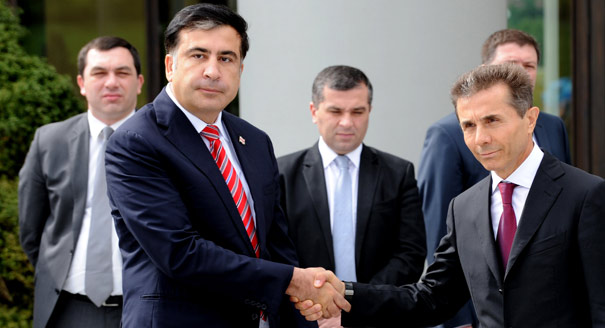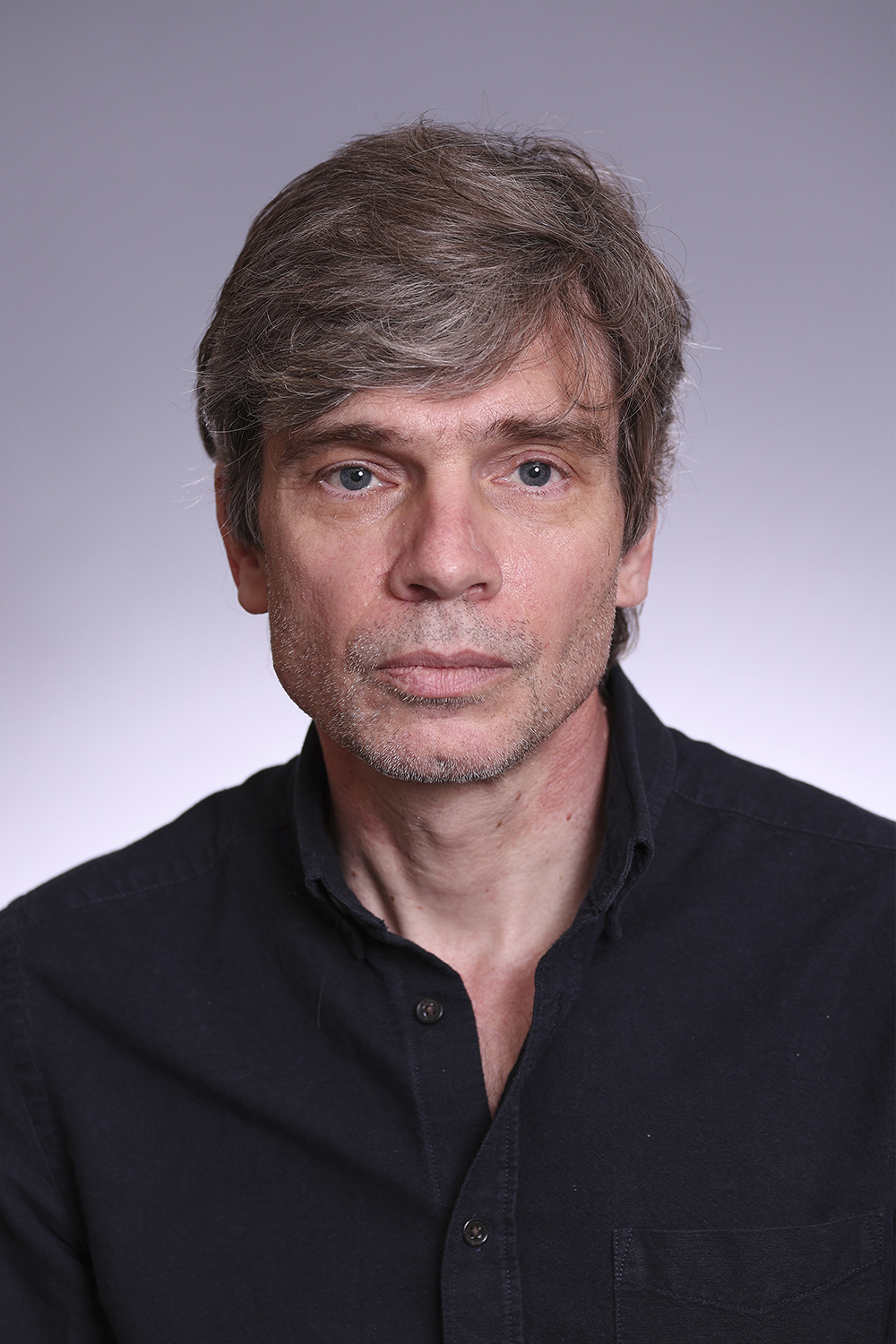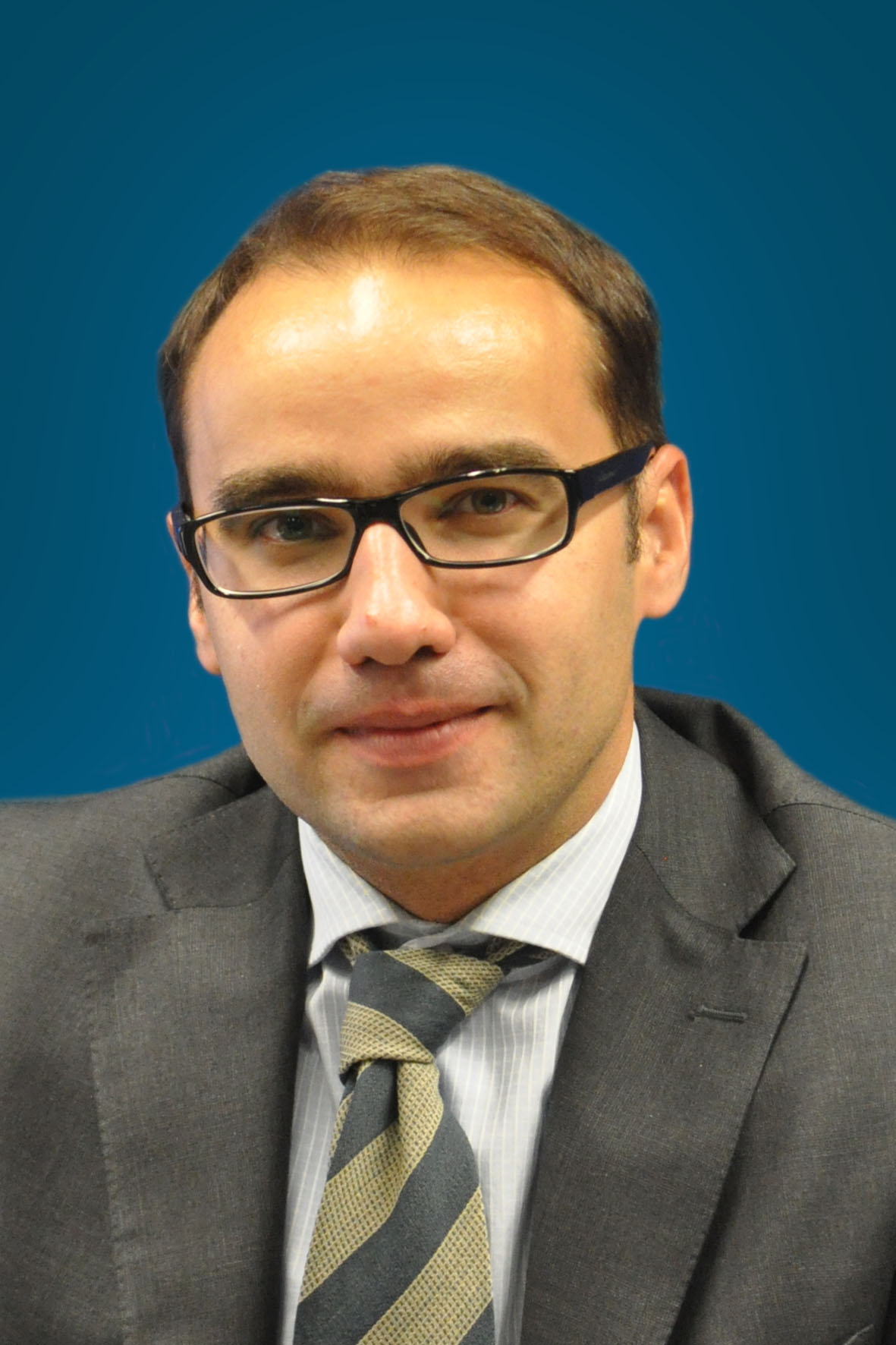The use of technology to mobilize Russians to vote—a system tied to the relative material well-being of the electorate, its high dependence on the state, and a far-reaching system of digital control—is breaking down.
Andrey Pertsev

Source: Getty
Georgia’s government should take a transitional justice approach to crimes allegedly committed under Saakashvili’s rule and form a truth commission to examine controversial cases.
The issue of what constitutes justice has come to the forefront of political life in Georgia.
On October 1, the Georgian Dream coalition won a decisive and widely unanticipated victory in Georgia’s parliamentary election. What might be called a historic “democratic moment” saw a peaceful handover of power through the ballot box to a new prime minister, Bidzina Ivanishvili. However, controversy has followed the election, particularly as a result of a series of arrests of officials associated with the previous governing party.
A furor has erupted in Georgia, with the arrests becoming the number-one issue of public debate in the country. The new government finds itself facing competing demands. On the one hand, the new leaders are accused of pursuing “political justice” and have heard expressions of serious concern from Western officials. In a meeting with Ivanishvili on November 16, U.S. Assistant Secretary of State Philip Gordon warned that if the new government was seen to be applying “selective prosecutions” that could affect “Georgia’s reputation in the world and its path towards the Euro-Atlantic institutions.”
On the other hand, the government evidently believes it has a popular mandate to investigate and punish what are allegedly very serious abuses committed by its predecessors. Some observers warn that the public could turn against the government if Ivanishvili is seen as submitting to Western pressure.Georgia needs a way to overcome past injustices without further dividing society. It is essential for Georgia’s peaceful development that it tackles this issue fairly and effectively. Here, the country can learn from the experiences of other emerging democracies that have faced similar problems. To bolster the rule of law in Georgia, the government should take a “transitional justice” approach to its political and legal problems by forming a truth commission to examine controversial cases from the past.
The political culture in Georgia remains very polarized after a bitterly contested election. The next few months will be critical, especially because two men who declared each other mortal enemies during the campaign are now forced to work side by side: President Mikheil Saakashvili, who remains in office into 2013, and Prime Minister Ivanishvili.
The prime minister enjoys more day-to-day authority, but until October 2013 when constitutional amendments enter into force that transfer many of the powers of the presidency to the prime minister, the president retains authority in several important areas, including the power to dismiss the cabinet and parliament and to return a draft law to parliament. (The Georgian Dream currently has 85 seats out of 150 in parliament—although it hopes to win more as a result of defections from the former governing party. To overturn a presidential veto it needs 91 votes, and to make constitutional changes it needs 101.) Gigi Ugulava, the mayor of Tbilisi and a close ally of Saakashvili, also remains in office and is opposing the new government on a number of issues.
Meanwhile, the new public prosecutor, Archil Kbilashvili, has filed a series of charges against former public servants. Ironically, he has at his disposal the instruments of the very same criminal justice system that he is recommending be investigated for abuse.
On November 7, 2012, former interior minister Bacho Akhalaia and former army chief of staff Giorgi Kalanadze were arrested on charges of exceeding official powers, which have since developed into accusations of torture and abuse. Akhalaia may also face charges relating to other decisions he took during his official career, such as the violent suppression of a riot in Tbilisi Prison No. 5 in March 2006, when he was prisons minister, and the death in custody of a retired military officer, Sergo Tetradze, last year.
A second wave of arrests followed on November 15, resulting in charges being filed against eleven former Interior Ministry officials, including the deputy mayor of Tbilisi, Shota Khizanishvili.
The arrests present Georgia’s political class with a difficult set of issues. It is important that there is justice and accountability for crimes and abuses committed in the past, but equally vital that justice is seen to be fair and apolitical. There is also a political imperative for healing and unity—the most revered person in the country, the patriarch of the Georgian Orthodox Church, Ilia II, has called for reconciliation, expressing the hope that “there will be no revenge, there will be no enmity and instead we will be brothers.”
The furor around these arrests, both in support of and in opposition to them, reflects that the rule of law is probably the most critical problem for present-day Georgia. In fact failings of the rule of law could be called the “dark side” of the 2003 Rose Revolution, which unfortunately—and despite the efforts of nongovernmental organizations such as the Georgian Young Lawyers’ Association and Human Rights Watch—received less attention than the government’s anticorruption and economic reforms.
Nine years after President Mikheil Saakashvili came to power, Georgia possesses what could be described as strong “technical institutions,” such as its Central Electoral Commission or traffic police, but not durable legal institutions. Data from the World Economic Forum’s annual Global Competitiveness Report illustrates the nature of the problem. In the organization’s latest report Georgia is ranked second out of 144 countries for the number of days required to open a business and ninth when it comes to “burden of government regulation.” However it comes in 95th place with regard to “judicial independence,” a lowly 131st place when it comes to “property rights,” and in 141st place with regard to “effectiveness of anti-monopoly policy.”
A pattern was set in the period immediately after the Rose Revolution when Saakashvili and his government began detaining many officials from the government of Eduard Shevardnadze who were widely believed to have enriched themselves at the people’s expense. There was little sign of due process and most of the cases were dropped as soon as substantial funds or assets, worth millions of dollars in total, were handed over. In one case raised by human rights watchdogs, former official Sulkhan Molashvili, said that he was tortured with cigarette burns and electric shocks while in custody.
Asked in November 2012 whether he regretted the way these men had been arrested, President Saakashvili did not deny that due process was not observed. But he said that there was a “big, big difference” between the actions undertaken by his government and the present spate of arrests because the men arrested under his government “proved themselves corrupt.”
The Saakashvili administration also presided over dozens of controversial economic cases in which businesses or properties were confiscated. Many of these expropriations are now being contested by the former owners. The claimants range from small property owners living on sites that the government planned to develop as major new tourist zones to tycoons formerly close to the Shevardnadze government to regular businessmen. In one example among many, businessman Jemal Leonidze, who was jailed in 2010 on fraud charges and is still in prison, says that his company Magnati-2006 was forced into bankruptcy and its assets devalued after it was targeted for takeover by the government.
In 2006, the president unveiled a new and harsh “zero tolerance” policy on crime, as a result of which petty crime fell significantly. This led to a sharp increase in criminal cases in which acquittals were virtually unknown, with more than 99 percent of criminal cases brought to court ending with a conviction. According to the Ministry of Justice, the policy was aimed at “transforming the public’s attitude towards crime, decreasing the crime rate to a minimum, and eradicating impunity by reacting to every single crime, including minor [ones].”
The government also adopted the new process of “plea bargaining,” loosely tailored to the American model. The number of plea bargains climbed steadily over the years, with more than 9,000 such agreements being concluded in 2008. In 2009, more than half of cases were concluded in this manner, with defendants agreeing to plead guilty and pay “damages,” thus avoiding a jail sentence. These agreements turned into a big revenue-generating tool for the government: in the first eight months of 2009, they contributed about $55 million dollars to the Georgian treasury.
The “zero tolerance” policy gave new powers to the police, which became a feared institution. In enforcing the new policy, the police made extensive use of a Soviet-era law dating back to 1984, which allows for the ninety-day detention of suspects on police testimony (the new government says it plans to end this practice).
The policy led to an increase in the excessive use of force by police and a growing number of deaths during arrest. In 2011, the ombudsman (called the public defender in Georgia) reported that “force used by police during arrest often exceeds the allowed limit and in some cases reaches the degree of a crime itself.” In 2005–2006, 73 arrests resulted in the deaths of 25 suspects, nearly all of them unarmed. Criminal investigations into the use of excessive force by the police were only initiated on four occasions. Official inquiries into such incidents have taken place in only 2 percent of all cases.
A notorious case of police abuse attracted wide public attention in 2006. A twenty-eight-year-old bank clerk, Sandro Girgvliani, was tortured and killed by police officers after an altercation witnessed by senior officials in the Interior Ministry. Two junior police officers were given relatively short jail sentences for the murder and later pardoned. In April 2011, the European Court of Human Rights sharply rebuked the Georgian government for creating a “culture of impunity inside the Interior Ministry” and ordered it to pay reparations worth $65,000 to Girgvliani’s father.
The most egregious human rights problem the new policies created was in Georgia’s prisons. Georgia’s prison population has tripled since 2004 and in 2012 stood at 23,227. Georgia now has the highest per capita prison population in Europe, with 514 prisoners per 100,000 citizens, and the sixth highest out of 221 prison systems in the world. The number of deaths in prison rose unprecedentedly as well. In 2006, 89 people died in prisons, and that number rose to 140 in 2011. In total during last six years, 653 prisoners have died within the prison system, and according to the public defender, at least 6.57 percent of those deaths resulted “from violence.” As a comparison, in 2009 the average prison mortality rate in Europe was 28.9 to 10,000 inmates, while Georgia’s rate was 71.6—the third highest in Europe.
Gavin Slade, an expert on criminal justice issues in Georgia, has observed that the country’s penal system has borrowed aspects of both the U.S. and Russian prison systems. He notes, “Georgia has combined the worst of both of these worlds: it is a world leader in imprisonment, lacks any rehabilitative philosophy, and its corrections system has become an economic system in its own right. In short, crime-control became more than about law and order; it became a system of governing a whole array of social problems in Georgia.”
Conditions in jails played a major role in the election campaign when shocking video evidence of torture and abuse, including rape, from Tbilisi’s notorious Gldani Prison was leaked to two opposition television channels. Evidence suggests that this kind of treatment was an endemic practice. The most recent public defender’s report declares that “inhuman and degrading treatment remains one of the principal challenges of the Georgian penitentiary.” For instance, a man currently imprisoned in Prison No. 2 in Kutaisi was said to have been beaten, stripped naked, and humiliated by officials. In a seminar on civil society and human rights in Georgia in June 2012, Tamar Chugoshvili of the Georgian Young Lawyers Association has stated, “many defendants [in remand] end up in Prison No.8 in Gldani, which is notorious for problems of ill-treatment, and this contributes to the high number of defendants who wish to enter a plea bargain.”
It is the political fallout from this criminal justice system that Georgia now needs to address.
The new Georgian government has declared that it will tackle this legacy of human rights abuses and review controversial past cases. An encouraging sign is that the new minister of justice, Thea Tsulukiani, is a respected lawyer who formerly worked at the European Court of Human Rights in Strasbourg. At the same time the government, backed by a substantial constituency, has been accused of using the arrests as political retribution.
So far the government has not offered a general policy statement on what it considers appropriate criteria for prosecution or pardon. As if to illustrate this, a working group in the new parliament set up by Georgian Dream devised a list of 184 people whom it deemed “political prisoners” and recommended them for release. But the criteria according to which the list was drawn up were unclear, prompting two nongovernmental organizations to pull out of the group.
The new government needs to respond to three categories of crimes allegedly committed under Saakashvili’s rule, all of which are perceived to have political elements. The first category encompasses physical crimes, including extrajudicial killings, torture, inhuman and degrading treatment, beatings, illegal arrests and imprisonment. The second includes crimes against privacy and personhood, such as illegal surveillance, wiretapping, harassment, and threats. And the third involves economic issues, such as the arbitrary deprivation of property and business.
At the moment two options are being discussed in Georgia for dealing with this issue systematically: the formation of a parliamentary investigative commission and the retrial of cases through the general courts.
Both of these approaches are problematic, however. Prosecutions initiated as a result of an investigative commission set up by the parliamentary majority might be perceived as being politically motivated.
Nor is it a viable option to reopen a large number of trials. Georgia’s current judicial corps would not be capable of dealing with these issues. Most of the current judges were appointed during the Saakashvili era, and some of them have issued convictions in cases widely believed to have had a political character and to have been marred by procedural violations. Moreover, Georgian judges do not enjoy the trust of the public, as they are perceived by many to have been political appointees of the previous administration. The judiciary was regarded as one of the least-trustworthy public institutions in Georgia in a 2009 survey by Transparency International.
Just as importantly, with the increased number of criminal cases and shortened time frames for criminal trials, judges are now facing an overwhelming workload. As a result, adding new cases to the existing docket, many of which are highly complex and involve evidence going back many years, will not result in a swift application of justice.
So that it can strike a fair balance between the demands of justice and political fairness, as well as the pressures of time, Georgia should adopt a “transitional justice” process to deal with this complex challenge. The approach should be similar to the ones applied in South Africa, Argentina, Timor Leste, Sierra Leone, and Peru.
At first glance, it may seem strange to compare Georgia to these countries, most of which saw massive violence committed in civil conflict. However, the pattern is similar, even if the scale is smaller. At issue are alleged serious abuses, a disputed political legacy, and the need for a temporary justice mechanism that is seen to be fair and bridges a political transition, during which the country is building a legal system that commands universal respect.
Georgia’s new transitional justice commission can be endowed with a range of powers, including the power to summon witnesses and to recommend that some persons be prosecuted in the criminal courts and others pardoned. The overall goal of the process is to make a definite break with the past by confronting the root causes of an abusive system and providing a historically grounded narrative about it. To borrow French philosopher Ernest Renan’s definition, its task is to determine what Georgia should remember, as a nation, and what it should forget.
One attractive model for Georgia, given the issue of how to deal with a police and state security apparatus accused of abuses, is the Argentinian National Commission on the Disappeared. The commission’s task was to investigate the mass disappearances of people between 1976 and 1983 and to uncover the facts involved in those cases. Its acclaimed report, Nunca Más (Never Again), based on thousands of testimonies and interviews, documented how approximately 9,000 disappearances took places and how the system made this possible. It also made recommendations for the future. The Argentinian commission’s report was crucial in establishing a reparations program for the victims, strengthening its rule of law, and prosecuting a number of members of military junta.
Georgia’s Truth, Justice, and Reconciliation Commission will deal with a more modest number of cases that nonetheless have a deep impact on a small and polarized society.
In order to enjoy legitimacy, the commission needs a strong mandate and a strong basis in society. Above all, it needs to be independent. The commission itself should have broad authority to define its own mandate, including the time period it should address and what cases it should investigate, but a deadline by which the commission must complete its work should be specified in a statute. It should also have the power to review criminal cases already initiated by the new government.
The Georgian commission could follow the example of its Argentinian counterpart and be composed of thirteen individuals. The procedure for making appointments could be similar to the process through which Georgia’s Constitutional Court justices are appointed: six members appointed by the prime minister, three by the president, three by the parliament, and one member appointed by the Georgian Orthodox Church. Because the commission’s tasks are urgent, the process of appointment should be public yet relatively swift.
The appointed individuals should be competent, highly credible, and authoritative, and they need to enjoy a high degree of public trust across society. For that reason, the commission should also aspire to meet gender balance and to include Georgia’s ethnic minorities. Commission members should be figures of authority, who come from a variety of backgrounds, including history, economics, and ethnography was well as law. They do not need to have been neutral, yet they should not be a member of any political party.
The commission also needs to be given the power to be effective. That means that it must be well funded and adequately staffed, with a mandate that gives it the power to summon witnesses and ensure the cooperation of law enforcement agencies.
Finally, the commission must have the trust of the public and be transparent. The public should be constantly kept abreast of developments. The commission should determine itself whether it will hold public hearings, but regardless, it should accept a large number of depositions from individuals and create a scrupulous record of testimonies. The commission’s report should be presented to the parliament and made publicly available on government websites as well as at government offices.
Georgia’s new leadership is facing an ongoing political crisis, for which a transitional justice commission, adapted to face Georgia’s needs and challenges, is the right instrument. Timing is of the essence: a swiftly created mechanism can help avert a looming political confrontation. Over a longer time period, if it is allowed to do its work effectively, Georgia’s Truth Commission could help usher in more fundamental respect for the rule of law and would set the country on the path to a democratic future.
Anna Dolidze is a visiting assistant professor of law at Western University and a Joachim Herz Fellow at the German Marshall Fund. She is a former chairperson of the Georgian Young Lawyers’ Association.
Anna Dolidze

Senior Fellow, Carnegie Europe
De Waal is a senior fellow at Carnegie Europe, specializing in Eastern Europe and the Caucasus.
Carnegie does not take institutional positions on public policy issues; the views represented herein are those of the author(s) and do not necessarily reflect the views of Carnegie, its staff, or its trustees.
The use of technology to mobilize Russians to vote—a system tied to the relative material well-being of the electorate, its high dependence on the state, and a far-reaching system of digital control—is breaking down.

Andrey Pertsev
New data from the 2026 Indian American Attitudes Survey show that Democratic support has not fully rebounded from 2020.


Sumitra Badrinathan, Devesh Kapur, Andy Robaina, …
New thinking is needed on how global civil society can be protected. In an era of major-power rivalry, competitive geopolitics, and security primacy, civil society is in danger of getting squeezed – in some countries, almost entirely out of existence.


Richard Youngs, ed., Elene Panchulidze, ed.
As discussions about settlement and elections move from speculation to preparation, Kyiv will have to manage not only the battlefield, but also the terms of political transition. The thaw will not resolve underlying tensions; it will only expose them more clearly.

Balázs Jarábik
How significant are statements by senior U.S. officials about supporting democracy abroad in the context of a foreign policy led by a president focused on near-term transactional interests?


Thomas Carothers, McKenzie Carrier